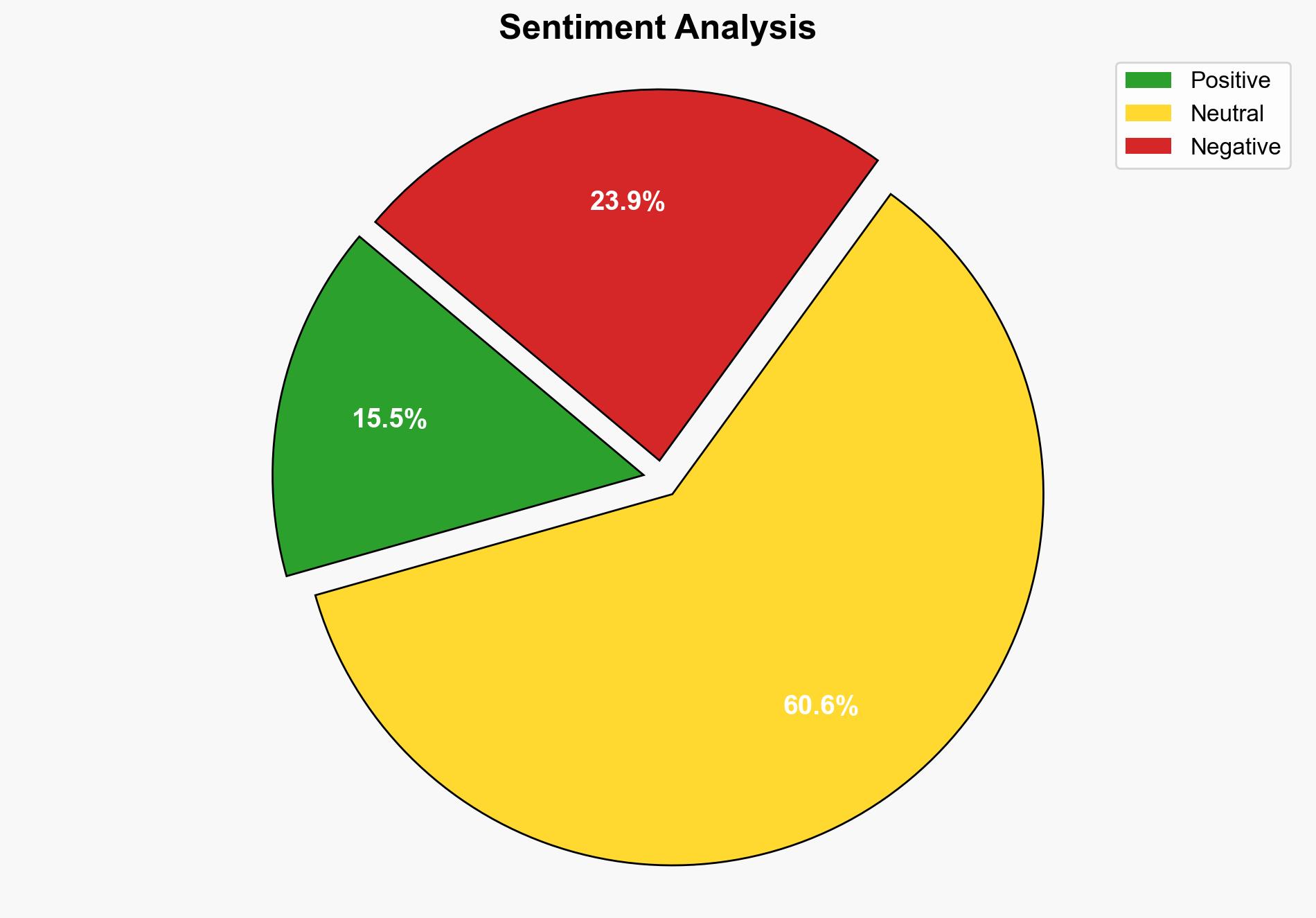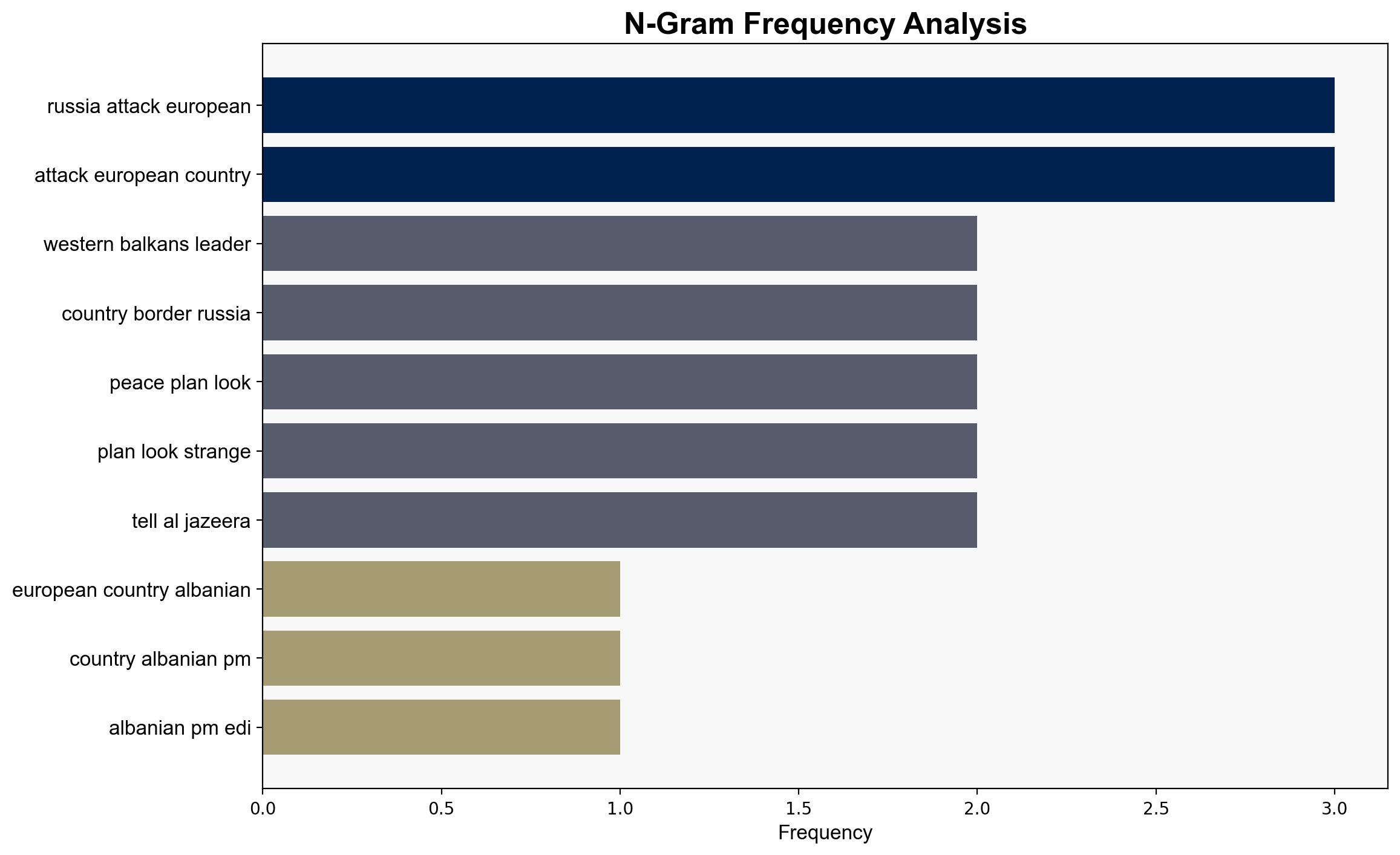Russia will not attack any other European country Albanian PM Edi Rama – Al Jazeera English
Published on: 2025-11-04
Intelligence Report: Russia will not attack any other European country Albanian PM Edi Rama – Al Jazeera English
1. BLUF (Bottom Line Up Front)
The most supported hypothesis is that Russia will avoid direct military confrontation with NATO member states, focusing instead on hybrid warfare tactics. Confidence level is moderate due to ongoing regional tensions and historical unpredictability in Russian foreign policy. Recommended action is to enhance NATO’s readiness and cybersecurity measures in Eastern Europe while pursuing diplomatic engagement to reduce tensions.
2. Competing Hypotheses
Hypothesis 1: Russia will not engage in direct military attacks on other European countries, particularly NATO members, due to the high risk of escalation and potential military defeat. Instead, Russia will focus on hybrid warfare tactics such as cyberattacks and disinformation campaigns to destabilize European unity and influence regional politics.
Hypothesis 2: Russia may consider limited military actions against non-NATO European countries or engage in provocations to test NATO’s response and resolve, leveraging regional tensions and exploiting divisions within the EU.
Using Analysis of Competing Hypotheses (ACH), Hypothesis 1 is better supported by the current intelligence, which highlights Russia’s historical avoidance of direct military confrontation with NATO and ongoing hybrid warfare activities.
3. Key Assumptions and Red Flags
Key assumptions include the belief that Russia perceives NATO’s military capabilities as a significant deterrent and that hybrid warfare is a more viable strategy for achieving its objectives. Red flags include the possibility of misinterpretation of Russian military movements and the potential for unexpected provocations. There is also a risk of underestimating Russia’s willingness to escalate if it perceives existential threats.
4. Implications and Strategic Risks
The continuation of hybrid warfare poses risks to European cybersecurity and political stability. Economic sanctions and diplomatic isolation may further strain Russia’s economy, potentially leading to more aggressive tactics. The potential for miscalculation or accidental escalation remains a significant risk, particularly in regions with existing tensions such as the Western Balkans.
5. Recommendations and Outlook
- Enhance NATO’s rapid response capabilities and cybersecurity infrastructure to counter hybrid threats.
- Engage in diplomatic efforts to de-escalate tensions, focusing on dialogue with Russia and strengthening EU unity.
- Scenario-based projections:
- Best Case: Successful diplomatic engagement reduces tensions, and hybrid threats are mitigated through enhanced security measures.
- Worst Case: Miscalculations lead to military confrontations, escalating regional conflicts.
- Most Likely: Continued hybrid warfare with periodic provocations, necessitating ongoing vigilance and strategic adjustments.
6. Key Individuals and Entities
Edi Rama, Volodymyr Zelenskyy, Martin Jager, Ursula von der Leyen, Donald Trump
7. Thematic Tags
national security threats, cybersecurity, counter-terrorism, regional focus




